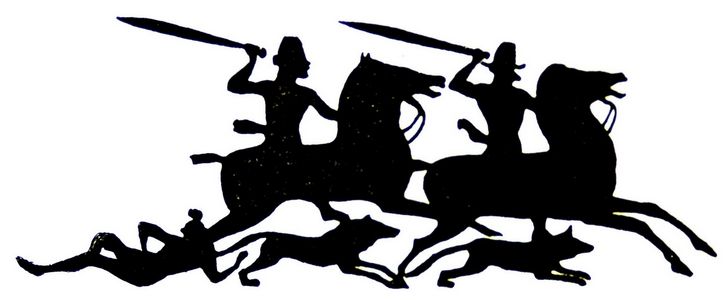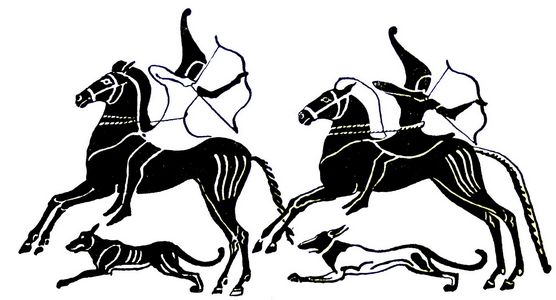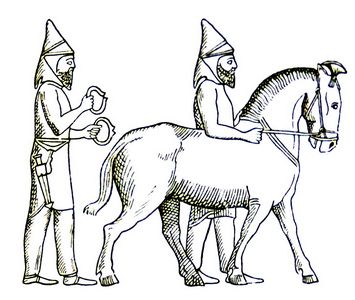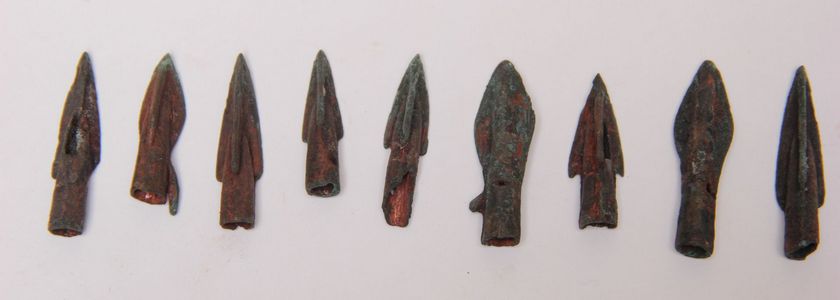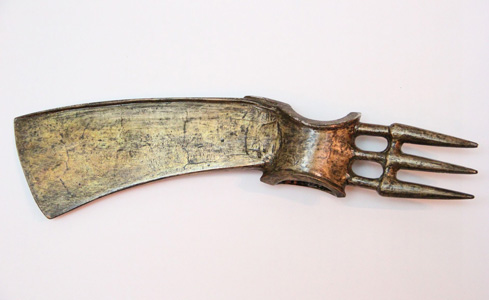SCYTHIAN KINGDOM
Among the tribes that have left their mark on the history of Azerbaijan, the Cimmerian, Saka and Scythian tribes have a special place. From the first quarter of the 7th century B.C., a large influx of Cimmerian, Saka and Scythian tribes from the north to Western Asia began. Some of them settled in the territory of ancient Azerbaijan. According to the ancient Greek historian Herodotus, "the Scythians invaded Asia following the Cimmerians who they had driven out of Europe, then following the Cimmerians running away from there to Media invaded Media." Assyrian cuneiform records show that "the Scythians came to the borders of Manna." Sources from 693 B.C. mention the name of the Scythian kingdom. The Scythian kingdom was formed in Azerbaijan by Cimmerian, Scythians and Sakas, in the northern and western part of Lake Urmia, between Manna and Urartu, and some tribes lived in the north-western and western parts of the Caucasus Mountains.
The Scythian kingdom had a stable territory in Azerbaijan. Studies show that the kingdom lasted at least 80 years. It had its own ruling dynasty, and the period of Scythian hegemony had begun in Asia. The Scythians acted as allies with the Mannaeans and fought against the Assyrians. The Median king Cyaxares in the first years of the 6th century B.C., he put an end to the Scythian kingdom, recruited most of the Scythians to his army and used them in the wars against Assyria and Urartu. The Scythians and Saks living in the territory of Azerbaijan acted as allies of the Achaemenids against Alexander the Great.
Scythian arrowheads found in many territories of the Republic of Azerbaijan (Mingachevir, Gadabay, Absheron, Nakhchivan, etc.), the custom of burying the dead in an elongated form, seal-rings depicting Sakas with sharp-headed hats, decorative elements in animal style, as well as historical legends indicates that Scythians inhabited in Azerbaijan substantially . Some of the ancient toponymic names also confirm that the Scythians lived in Azerbaijan for a long time. Scythian martial arts and art had a profound effect not only on Azerbaijan, but also on many peoples of Western Asia.
